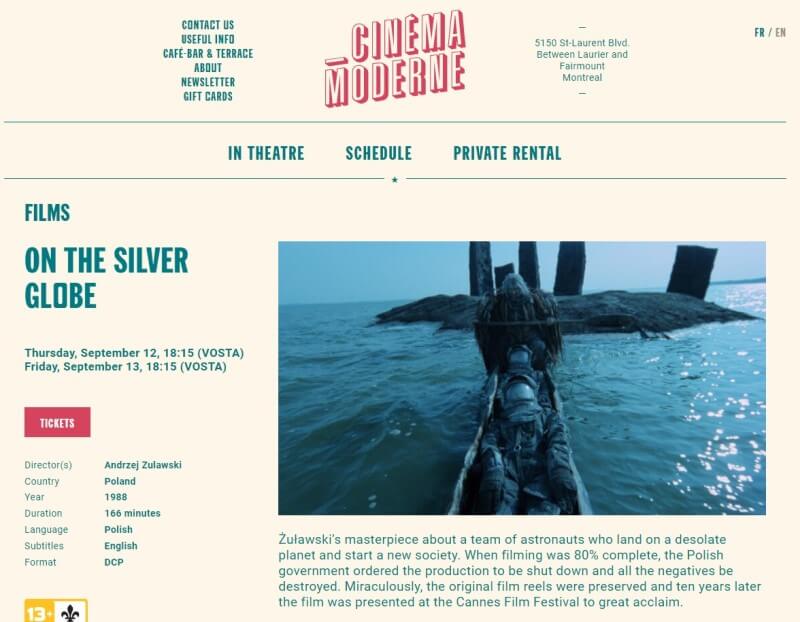When You Think You're Helping... But You're Not
Sep 12, 2024 4:55 pm
The artist Marek Zulawski, translation & Polish-British culture
Hi,
Welcome to Autumn, the best season of the year. Great walking weather and no pollen messing it up. What's not to like?
This week's translation from my father's autobiography is an episode from the late 1940s, a time when large-scale environmental organisations were few and far between.
---
Oil
Hastings, Old Town, photo by Ben Guerin on Unsplash
Maggie had an old fishing schooner anchored off Hastings. She always hid her narrow hips, white shoulders, and magnificent large breasts under thick sweaters with high collars. She was extraordinarily strong when it came to her hands. She could pull herself up onto the deck through a narrow hatch in a single motion. Maggie could manoeuvre the schooner on her own, but she needed the help of young boys when she went out to fish.
At night, the cries of seabirds driven ashore by the storm echoed through the air.
In the morning, when we crawled out from under our blankets, we ran to the stony beach. It was wet and cold — the wind whipped at the shallow puddles left by the tide — and the sun hung low on the horizon, still without warmth.
And then we saw him.
Black as a shred of the passing night, with a long serpentine neck and a powerful body, he began to run away from us across the puddles, urging himself on with his wings. But he didn’t soar into the air. When we finally caught up to him, he turned his beak to us, hissing like a snake. He braced himself for an uneven fight. He was a cormorant.
We stopped in our tracks. His black feathers, legs, and throat were all covered in a hideous sticky substance. Oil.
A great cormorant, photo by Hongbin on Unsplash
Only with great difficulty did we manage to grab him. He struck at my hands, attacking with his beak. I finally cradled him in my arms while Maggie held his head to stop him mutilating my face. In the cabin, we shoved him into a tub of soapy water. He thrashed his wings like a demon. Bits of foam flew through the air. He struggled so violently that it was hard to keep hold of him. He had astonishing strength.
When we returned to the beach, the cormorant suddenly realized that we didn’t want to harm him. He let us carry him calmly, and when we released him onto the sand, he let out a brief triumphant cry and started running straight towards the sea. He was already in the water, swimming faster and faster, rowing with his wings. But he couldn’t lift himself into the air. He turned back towards us, no longer fearful.
So we took him for a second bath in soapy water, scrubbing his matted chest for a long time. We must have scrubbed for too long because when he tried to take off again, it became clear that we had washed away the natural oils that protect water birds from getting soaked. He turned back with a terrible scream — running straight towards us, dripping water. His feathers hung like rags.
“What have you done, you fools?” he seemed to cry. “What have you done to me? Save me!!!”
The early winter dusk was approaching. What could we do? We carried him to the yacht and placed him in the cockpit. We bought freshly caught fish and tossed them in front of him. He didn’t even look at them. He stood in the corner of the cockpit, head bowed, beak pressed against the wall, turned away from us, turned away from the world. A passing fisherman stopped on the shore and stared at the three of us.
“What now?” I asked. “How can we save him?”
The fisherman waved his hand dismissively.
“You won’t save him, brother. Wild birds, unlike humans, don’t cling to life with their claws. His heart's broken. He wants to die.”
By morning, the wind had calmed down. It had grown warmer. In the corner of the cockpit, in the exact spot where we had left him the night before, lay the black dead bird, who, in the prime of his life, had chosen to die because fate had taken away his right to the open oceans.
---
More Canadian screenings
After the recent screening in Edmonton, On The Silver Globe is coming to another Canadian city - this time it's Montreal. The screenings are tonight and tomorrow at Cinéma Moderne, and will be yet again preceded by a recording of me saying some stuff and a live talk by Pierre Van Cutsem.
Meanwhile, the original Lunar Trilogy books by my grandfather Jerzy Żuławski have officially come out in fancy new editions in Poland. They come with a music soundtrack and are available for purchase here.
---
The encyclopaedia of wtf
Moving on to the story of an even older book, here's a highly entertaining explainer video about Benedykt Chmielowski's 1745 book Nowe Ateny (New Athens), a cult classic of nonsense masquerading as an encyclopaedia.
---
That's all for this week. Many many thanks for reading.
Adam
Adam Zulawski
TranslatingMarek.com / TranslatePolishMemoirs.com / Other stuff
👉 Help fund the translation of Studium do autoportretu via Paypal 👈
Sent this by someone else?






